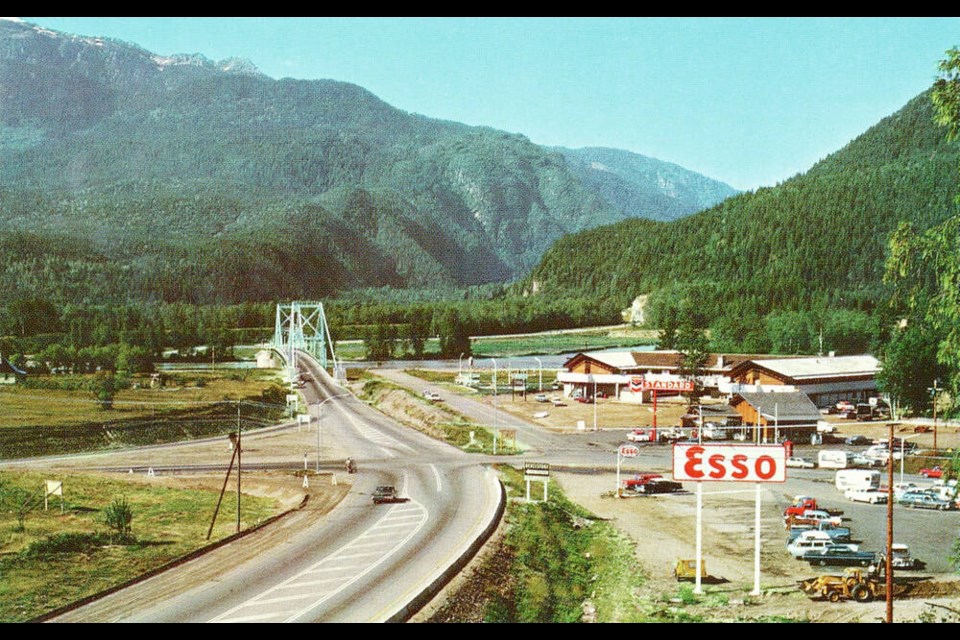Sixty years ago, a political melodrama unfolded 13 kilometres east of Revelstoke.
In the summer of 1962, after 12 years of political wrangling and great feats of engineering, the final section of the Trans-Canada Highway was nearing completion.
That long-awaited section was the 148-kilometre stretch between Golden and Revelstoke. Crossing the ruggedly imposing Selkirk Mountains, where 15 metres of snow can accumulate in winter and avalanches thunder down the surrounding slopes, the Rogers Pass highway was one of the most challenging segments of the entire 7,821-kilometre Trans-Canada project. It took five years to build and cost $40 million (about $965 million in today’s dollars).
And with much of the route winding through Glacier and Mount Revelstoke national parks, the federal government paid for a good chunk of the work. Under the 1949 Trans-Canada Highway Act and related federal-provincial cost-sharing agreements, the feds paid all of the costs for sections of the highway within federal lands and half the costs for highway sections located outside of federal lands in B.C.
To celebrate the completion of the highway, the feds planned an opening ceremony for Sept. 3, 1962, at the summit of Rogers Pass, in Glacier National Park. Then-prime minister John Diefenbaker would officiate.
But B.C.’s government had other ideas.
“William Andrew Cecil Bennett, prime minister of British Columbia, and Phil Gaglardi, a fast-talking preacher who builds highways, are opening a new road up this Monday,” John Kirkwood wrote from Revelstoke in a July 28, 1962, editorial for the Vancouver Sun. “It isn’t theirs, not all of it, but they’re going to open it anyways, standing on a platform at the roadside with British Columbia’s official bunting blowing about their ears.”
Two days later, then-premier Bennett snipped a blue ribbon at the Illecillewaet Valley Lookout on a provincial section of the road and pronounced “B.C. Highway No. 1” open. “A crowd of about 500 sipped cans of local fruit juice, munched cherries and apricots all ‘on the house.’ Six women fainted,” Victoria Daily Times legislative reporter Frank Butter reported. “Earlier, about 250 attended a buffet luncheon; later, close to 1,000 showed up at a beef barbecue.”
(Butter’s attention to the grub on offer serves to reassure public relations officers even today of the time-honoured secret to successfully enticing journalists to cover events: Feed them.)
“The only federal officials who attended were half a dozen works department engineers and officials of Revelstoke and Glacier National parks through which 35 miles of the highway run,” Butter continued. “Other invited Ottawa brass stayed away. They have their own show Sept. 3.”
Indeed, senator Sydney Smith, Kamloops-based rancher and businessman, was reported as describing Bennett’s opening of the Rogers Pass highway as “comic opera.” (The senator turned down his invitation to Bennett’s ceremony.)
Bennett’s government never explained why it pre-empted the federal event. The highway wasn’t even entirely finished in July. About 35 kilometres of the route’s provincial section west of Golden remained under construction, and five avalanche sheds in Glacier National Park wouldn’t be finished until that September.
It wasn’t even known until the day of the ceremony if Ottawa would allow the highway to remain open post-ceremony, despite the ongoing heavy construction.
Political grandstanding and jurisdictional bickering may have been factors in the province’s ceremony. Bennett’s mercurial personality very probably played a starring role in the scheduling decision.
And unofficial electioneering likely provided strong motivation.
When Bennett blasted reporter Kirkwood and the Vancouver Sun for being “poison pens” in their coverage of his ceremony, the paper slyly responded: “You would almost have thought there was going to be a by-election in Revelstoke with all the razzle-dazzle and Social Credit bigwigs thronging the streets.”
It would have been fairly common knowledge at the time that the NDP MLA for Revelstoke, George Hobbs, had died suddenly the previous January. The government needed to hold a byelection to fill the seat before the end of September.
A joint federal-provincial highway-opening ceremony could have deflected valuable attention away from Bennett and the Social Credit party in the weeks before the byelection. (Margaret Hobbs, George’s spouse, won the byelection for the NDP, but lost it in the 1963 general election.)
But the byelection was likely only one passing reason for the scheduling drama. Eight years later, in 1970, when the federal-provincial funding agreement for Trans-Canada Highway construction ended, Bennett replaced all the Trans-Canada Highway signs in B.C. with “B.C. Highway” signs.
keiran_monique@rocketmail.com
>>> To comment on this article, write a letter to the editor: letters@timescolonist.com



